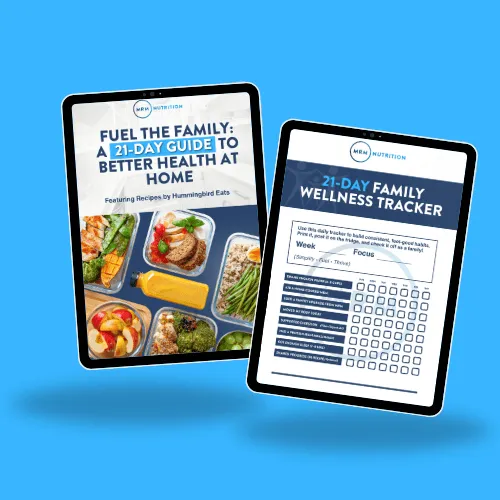Guest blog by: Andrea Marincovich, RD
First, let's start with a little bit of a background about fiber. Commonly unknown - fiber is a carbohydrate, which means that carbs must be a staple in your diet to receive all of its glory. There are two types of fiber – soluble and insoluble. The main difference between the two is that soluble fiber can dissolve in water and insoluble cannot. Regardless of the type, the body cannot break down fiber and regular consumption can provide lots of amazing health benefits. If you have been struggling with your fiber consumption, don't worry, here's how to add more fiber into your diet.
Recommended Daily Fiber Consumption
The Adequate Intake (AI) is 14g per 1000 calories consumed daily, this averages to about 25g per day for women and 38g per day for men. It should be noted that pairing your fiber consumption with the American Heart Association recommendation of drinking at least 64 ounces of water daily is important to avoid any gastrointestinal distress or gas build up in the body.
Soluble vs. Insoluble Fiber

Soluble fiber helps slow down the release of glucose into the blood stream after a meal, therefore leading to optimal blood sugar control. This type of fiber can also help lower cholesterol levels in the blood by attaching itself to the excess cholesterol molecules and excreting them through bowel movements.
Insoluble fiber can help you to feel satiated for a longer period of time after a meal, which provides more of a quality of life and can assist with weight management. Also, insoluble fiber adds a weight to help push bowel movements through our intestines and promoting regularity. If you need more insight on bowel movements, check out this blog post.
How to add more fiber to your diet
Commonly, most individuals struggle with their fiber consumption, but this does not have to be your life because increasing your fiber consumption is fairly easy. Below are specific fiber type food sources, however, the best way to add more fiber to the diet is to simply consume more whole grains, fruits, vegetables, nut, seeds and legumes.
Soluble fiber food sources: oats, lentils, apples, citrus, berries, peas, potatoes and nuts.
Insoluble fiber food sources: whole-wheat food products, amaranth, couscous, brown rice, legumes, cauliflower, peas, carrots, and cucumber.
Fiber Supplementation

If you dislike or struggle consuming the above mentioned food items, supplementation may be necessary for you to reach your daily fiber goal. You can achieve this by adding a scoop of MRM’s Whole Food Organic Fiber to any beverage, smoothie, yogurt or cereal as a fast and easy option to increase your fiber consumption. Each scoop provides 6g of dietary fiber, 5g soluble fiber and 1g insoluble fiber, helping you reach your daily fiber goal in no time. Not to mention that each scoop also provides digestive enzymes and prebiotics – it’s a gut health win-win!


